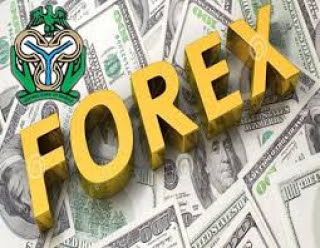The Naira depreciated in exchange rate value on Wednesday, trading at N810/$1 at the parallel market, representing 1.25% depreciation when compared with the N800/$1 it traded the previous day’s trading session.
According to traders in the market, the slide in the local currency is linked to shortage of dollars as business owners and individuals continue to push the Naira into the market following the latest directive of the Central Bank of Nigeria (CBN) to redesign high denominations of the Nigerian currency.
Also, at the cryptocurrency peer-to-peer (P2P) FX market, the Naira slided by 1.85% to trade at a minimum of N828/$1, down from N813/$1 that it traded during the early hours of Tuesday.
Available data on the local currency’s exchange rate at the Investors and Exporters (I&E) window showed that it depreciated by 0.68% to close at N446/$1, in contrast to N443/$1 recorded in the previous trading session, representing the lowest level at the official market in recent weeks.
The data showed that at I&E window, FX turnover stood at $51.58 million on Tuesday, which represented an increase of 28.79% over the $40.05 million that was traded on Monday.
Information sourced from the official portal of the monetary authorities showed, however, that Nigeria’s external reserve dipped further to $37.39 billion on Monday, indicating a decline of 0.16% when compared to $37.45 billion last Friday.
Over the years, the nation’s foreign reserve has not grown due a combination of external and domestic macroeconomic factors, including the changing pattern of foreign trade, institutional changes in the economy and structural shifts in production, amongst others.
In furtherance of its monetary policy measures to stabilize the Naira exchange rate, the Central Bank of Nigeria (CBN), has, over the past few years, continued to supply FX to the official FX market.
For instance, available data from the apex bank on its interventions in the FX market indicated that it injected $3.36 billion into the market in December 2021 and January this year as part of its efforts to stabilize the national currency’s exchange rate.






